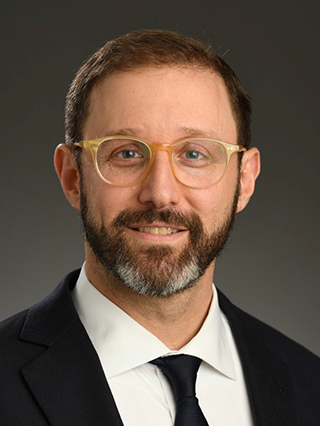What You Need to Know About Infertility
Should you freeze your eggs? At what age? And what about male infertility? An infertility expert answers these questions and more.

If you’re having difficulty getting pregnant, you’re not alone.
“Unfortunately, infertility and impaired fertility are quite common, affecting about 12 percent of reproductive-age women,” says Dr. Zev Williams, chief of the Division of Reproductive Endocrinology and Infertility at NewYork-Presbyterian/Columbia University Irving Medical Center and head of the Columbia University Fertility Clinic.
But infertility is often treatable, Dr. Williams adds, so it’s important to see a specialist if you’re having trouble conceiving. Here, Dr. Williams busts common myths about infertility, highlights exciting advances in treatments, and explains what you need to know.
What is infertility?
Infertility is a disease of the reproductive system that results in an impaired ability to conceive.
What are the common causes?
For a successful pregnancy to occur, a remarkable number of events have to happen properly. In fact, the more deeply we study and understand reproduction, the more amazing it is that it happens at all. For example, a healthy egg has to develop and be ovulated, the sperm have to be of sufficient quantity and quality, the uterus and fallopian tubes have to function normally, there cannot be hormonal abnormalities, and the timing has to be right. Abnormalities in any of these processes — and many others — can result in infertility.
What are common myths about infertility?
Unfortunately, infertility is an area replete with myths and misconceptions. A few of the most common are that infertility is rare (it isn’t; it affects about 1 in 8 couples) and that it is easy to get pregnant (it’s not; for a healthy couple with normally functioning reproductive systems, the odds of conceiving in a given month are only 20–25 percent). Thus, not getting pregnant after only a couple of months of trying is not a cause of alarm, but at the same time if there isn’t success after 12 months, there should be an evaluation.
Another common myth is that infertility is always due to the woman. In fact, when a cause for the infertility is found, in about half of all cases it is due to a male factor.
Finally, a common misconception is that insurance doesn’t cover fertility treatments. Many employers and insurance plans are now offering fertility benefits, so it is important to check.

Dr. Zev Williams
What role does age play in infertility?
Age, particularly the age of the woman, plays a major role. A woman is born with all the eggs that she will have. As a woman ages, the number and quality of eggs decline.
What can be done about the impact of age?
One increasingly popular option is egg freezing, which involves taking medications and then having a minor procedure to retrieve the eggs. The eggs are then frozen and stored. Once frozen, it is as though you have pushed a “pause” button on the aging of the eggs; the eggs will be just as healthy one month later as they will be in 10 years. There isn’t one ideal age for egg freezing but, generally, 35 is considered an age that strikes the right balance, but it is very individual and patients should get proper counseling on the risks and benefits.
How do you choose where to go for egg freezing?
You want to be sure to go to an experienced center that has demonstrated that they can freeze eggs properly and has had babies born from eggs that they have frozen. Egg freezing is a long-term prospect, so you also want to be sure that they will be there for you in five, 10 or more years when you may need to use those eggs. You want to be at a center that has experience with the full range of fertility treatments, not just egg freezing, so that if you do choose to use your eggs in the future they will be able to see you through the whole process. Finally, you want to have a physician who will fully explain the risks and benefits of egg freezing to help you make the right decision and at the right time.
Do lifestyle factors play a role in fertility?
To some extent they do, but probably to a lesser extent than most people assume. For example, about 12 percent of all cases of infertility are due to the woman weighing too much or too little. The good news is that in many cases this is reversible. Cigarette smoking is another lifestyle factor that can be a cause of infertility.
When should you see a fertility specialist?
The general guidelines are to seek the care of a fertility specialist after unsuccessfully trying to conceive for one year for women younger than 35 years old or six months for women 35 and older. However, if there are risk factors for infertility, such as irregular menstrual cycles, a history of tubal disease (such as pelvic inflammatory disease), or reasons to suspect other underlying conditions that can make it difficult to conceive, then a consultation earlier can be helpful.
How should you choose a fertility specialist?
It is important to consider both the specialist and the fertility center. For the specialist, you want someone who is not only board certified in reproductive endocrinology and infertility, but also a caring and compassionate practitioner who will conduct a thorough and careful evaluation to determine the cause for your infertility and tailor a treatment plan for you. The fertility center and its lab are also critical and should have highly trained, experienced, and meticulous nurses and embryologists and use the best culture techniques.
Both the physician and the fertility center should be at the leading edge of fertility treatment to give you the very best chance for success.
Fertility treatment represents one of the great triumphs of modern medicine. Causes of infertility that were incurable just a generation ago are now readily corrected.
Dr. Zev Williams
What infertility tests should you expect?
An infertility work-up involves carefully and systematically testing for all the things that have to go right to have a successful pregnancy, in order to see if there is a problem. For the couple, this will start with taking a thorough history. For the woman, she will also need blood work, an ultrasound of the ovaries, and possibly an X-ray to make sure there are no issues with her fallopian tubes and uterus. For the man, the evaluation will typically require a semen analysis.
What are the most common treatments?
There are a wide variety of treatments that can range anywhere from adjusting the timing of intercourse or using simple oral medications, all the way to IVF (in vitro fertilization), embryo testing, donor egg, donor sperm, and gestational carriers, commonly called surrogates. The key is to carefully evaluate the cause of the infertility so as to provide the optimal treatment. In many cases, a very simple solution is possible.
How have infertility treatments advanced over the years? What do you see in the near future?
Fertility treatment represents one of the great triumphs of modern medicine. Causes of infertility that were incurable just a generation ago are now readily corrected. Going forward, I think we will see fertility treatments become increasingly successful and increasingly used for helping couples who are carriers of very severe genetic diseases have healthy children.
Can you explain the technology your team developed to keep frozen eggs and embryos safe?
After two high-profile failures of storage tanks at fertility clinics in the Midwest and California led to the loss of thousands of eggs and embryos, we assembled a team at Columbia University Fertility Center to innovate a solution to this problem to prevent another tank failure from resulting in the loss of embryos. We developed a weight-based monitoring system that detects a problem with a storage tank before temperatures start to rise, in some cases over a month in advance, providing an earlier warning and greatly increased time to respond, fix the problem, and save the eggs and embryos. Our goal is to make a tank failure as impossible as possible. Cryogenic storage is safe and failures are very rare. But, when dealing with something as precious as an egg or embryo, even a single tank failure is one too many.
What’s new and exciting in this field?
We are working hard to constantly advance and improve fertility treatment to make it safer and more effective. Two exciting new advances include CORAL-IVF (Columbia Oral IVF), a new approach for stimulating the eggs to develop that uses a combination of oral medications in lieu of costly and uncomfortable injectable medications. In our preliminary results on patients who have not had success with traditional approaches, CORAL-IVF resulted in more embryos being produced but without the need for the 30 or so injections of conventional IVF and with much lower costs — about $40 versus $4,000.
Another very exciting area is the application of IVF to help ensure that couples who are carriers for genetic diseases can have a healthy child. In the past, those who were carriers of severe genetic diseases such as cystic fibrosis and Tay-Sachs had to take a chance that they would have an unaffected child. Now, we can test the embryos in the lab, before the woman is pregnant, and only put a healthy embryo back into her uterus, thereby ensuring that the child will not be affected by the disease.
Zev Williams, M.D., Ph.D., is the chief of the Division of Reproductive Endocrinology and Infertility at NewYork-Presbyterian/Columbia University Irving Medical Center and the Wendy D. Havens Associate Professor of Women’s Health at Columbia University Irving Medical Center. An internationally recognized clinician and researcher in the area of recurrent pregnancy loss and infertility, he leads the Columbia University Fertility Center. Dr. Williams completed his M.D. and Ph.D. training in molecular biology and biochemistry at the Mount Sinai School of Medicine before continuing to the Brigham and Women’s Hospital/Massachusetts General Hospital for his residency in obstetrics and gynecology. After completing his fellowship in reproductive endocrinology and infertility at Weill Cornell Medicine, Dr. Williams did a postdoctoral fellowship on RNA biology at Rockefeller University. Dr. Williams and his team are conducting research funded by the National Institutes of Health to develop novel technologies and approaches to improve the success and safety of fertility treatment and pregnancy.
